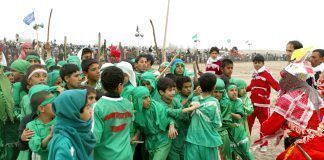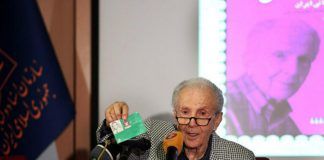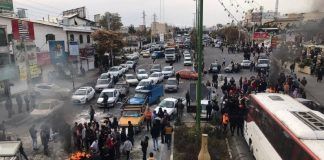Iran’s new online identity verification system has stopped the illegal sale of birth certificates and national identity cards belonging to drug addicts and deceased people, according to Seifollah Aboutorabi, the Spokesman for the National Organization for Civil Registration, which operates under the auspices of the Ministry of Interior.
The illegal sale of birth certificates and national identity cards belonging to drug addicts and dead people by criminal gangs has been in the news in recent months. Addicts, the family of the deceased, undocumented foreign nationals, and even government workers have allegedly been part of the criminal enterprise. The documents reportedly fetch money on the black market.
“Criminal gangs controlled the illegal sale of identity documents belonging to drug addicts until recently,” Mr. Seifollah was quoted by the Islamic Azad University News Agency (ANA) as saying earlier this month. “As a result, many drug users do not have IDs, which makes it difficult for them to reenter society after coming out of rehab clinics.”
“No one can use another person’s birth certificate any longer, which has helped to the illegal trade. Most organizations use the latest online identity verification system,” Seifollah explained. “Our office will issue duplicate birth certificates to addicts who had previously sold theirs, but only after they have undergone successful drug treatments. Their original birth certificates are canceled, and new ones issued in one month.”
[aesop_image img=”https://kayhanlife.com/wp-content/uploads/2020/01/2011-01-11T120000Z_1082716456_GM1E71B1LOP01_RTRMADP_3_IRAN-ISRAEL-scaled.jpg” panorama=”off” credit=”FILE PHOTO: Iran’s Intelligence Ministry display to the media what they said are fake identification cards. REUTERS./” align=”center” lightbox=”off” captionsrc=”custom” captionposition=”left” revealfx=”off” overlay_revealfx=”off”]
“The applicants must provide relevant information, including a proof of address,” Seifollah added. “Families, mosques, rehab centers, and police could help with confirming the identity of people with no fixed abode.”
Speaking at an open session of the Majlis (Iranian Parliament) last May, Iran’s Interior Minister Abdolreza Rahmani Fazli said that there were 30,000 people in the country who did not have proper documents to prove their Iranian citizenship.
“The number of people without proof of citizenship has dropped from 120,000 to 30,000 in recent years,” Mr. Fazli said. “Provincial authorities must address the issue at local levels.”
“People who seek Iranian citizenship fall into three groups,” Fazli explained. “There are 3 million Afghan nationals in Iran, of whom only 1.7 million are in the country legally. The second group comprises children of Iranian women married to foreign nationals. A bill recently passed by the Majlis and ratified by the Guardian Council will provide legal status and protection to those children.”
“The third group includes people who either do not have birth certificates or are in the country illegally,” Fazli noted. “Those who do not have birth certificates face many problems. We must do a better job of issuing new birth certificates for eligible people in this group and also cancel the birth certificates of people who are deceased quickly.”
“Law enforcement forces could previously confiscate the identity documents of people with no legal immigration status,” Seifollah added. “Nowadays, however, they need a court order to conduct searches and seize any documents.”
[Translated from Persian by Fardine Hamidi]







